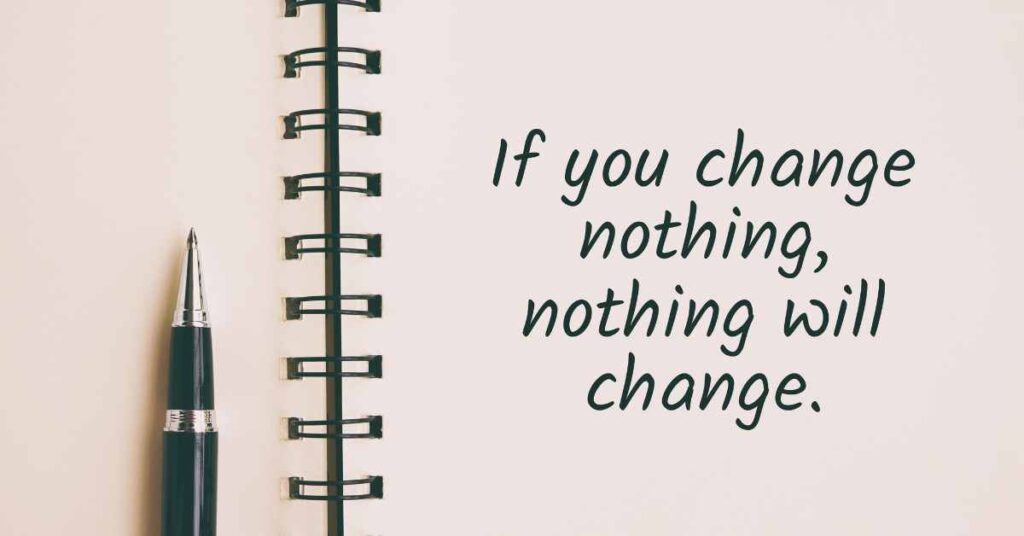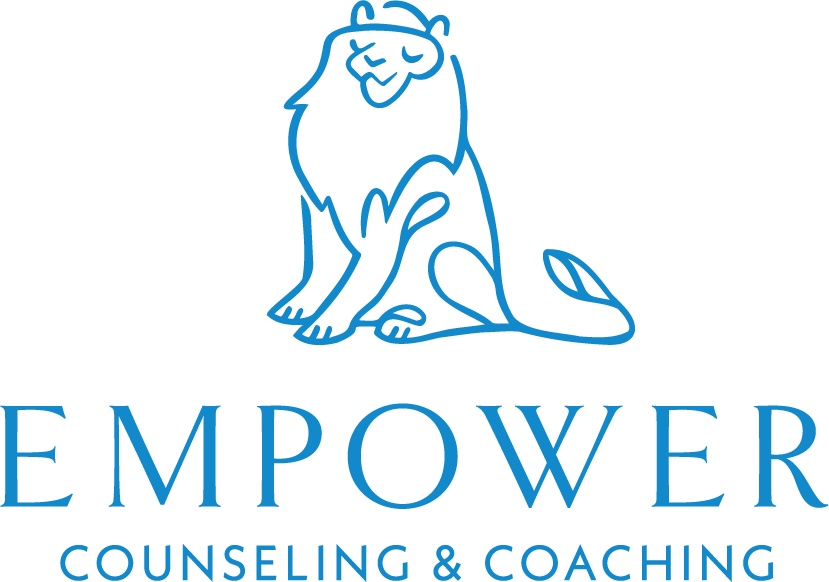
How to Create Lasting Change: The 7 R’s and other Insights from An Acceptance Commitment Therapist in Birmingham
Introduction
Embarking on a journey of lasting change requires more than simply starting new life-enhancing behaviors. Starting new behaviors is much easier than to keep practicing them until they become habitual. Yet, many of us put immense pressure on ourselves to do this at the beginning of each new year by making resolutions. Research suggests that only 9% of Americans who make New Year resolutions are successful in completing them; 23% stop by the second week of January and 43% stop by February. This is because change is HARD. It takes courage to choose change, but to sustain it, one needs a system in place and tools to use when life inevitably tries to pull you away from accomplishing your goals.
While there are hundreds, if not thousands of tools out there, in this blog post, we will explore the 7 Rs of lasting change derived from the principles of Acceptance Commitment Therapy (ACT)—reminders, records, rewards, routines, relationships, reflecting, and restructuring. Grounded in mindfulness and cognitive-behavioral strategies, these R’s provide a comprehensive guide for individuals seeking sustained transformation in their lives.

1. Reminders
ACT recognizes the importance of cultivating mindfulness, and reminders play a crucial role in this process. We can get really creative when reminding ourselves of the new habit we want to continue; in fact, it’s important to be creative and curious when making reminders as what works for one person, may not be effective with another. Set up cues or triggers in your environment to bring your attention back to the present moment and your values, fostering awareness and intentionality.
You might set an alarm on your phone or a pop-up on your computer with a word or symbol that reminds you to practice mindfulness or utilize a particular value. Maybe you have a favorite, inspirational quote you could write on a flashcard or sticky note and place it on the fridge, where you exit a room, in your car, or the bathroom mirror. Use a calendar, planner, journal, or smartphone app like “notes.” Another option would be to write one word like pause, breathe, patience, an acronym like S.T.O.P. (Slow your breath, Take note, Open up, Pursue your values), or a phrase like “be kind” or “let it be then let it go.” These will remind you to continue new behaviors and why it matters to you to do so.

2. Records
Keeping a record of your thoughts, emotions, and actions is a cornerstone of ACT. Regular journaling allows you to observe patterns, identify triggers, and gain insight into your inner experiences. Reviewing these records provides a valuable perspective on your journey, helping you make informed decisions and adjustments as you work towards lasting change.
You may note when and where you do new behaviors and what benefits came of it. Conversely, you can record costs of doing old behaviors and be able to track when we fall into old, familiar patterns. You can find record templates online, but any journal (paper or electronic) can serve this purpose.
3. Rewards
In the context of ACT, rewards are more than just celebrations; they are about reinforcing behavior aligned with your values. Acknowledge and celebrate small victories along the way, creating positive associations with the changes you’re making. This positive reinforcement contributes to the development of sustainable habits and behaviors.
It is the hope that when we live mindfully and according to our values, that would be rewarding in its own right. It never hurts to have a few extra tools to utilize, however. One kind of reward is kind, encouraging self-talk. This may sound like, “you did it!” or “well done!” Sharing your success and progress with someone you trust to respond positively can also be reinforcing. If you prefer a material reward, after sustaining a new behavior for a week, you might buy or do something you really enjoy like a new houseplant or get a massage.

4. Routines to help Create Lasting Change
Establishing consistent and values-based routines is emphasized in ACT. By integrating your goals into your daily routines, you create a structured environment that supports lasting change. Routines provide a sense of stability, making it easier to navigate challenges and stay committed to your values amid the ebb and flow of daily life.
If you get up every morning at the same time to exercise, meditate or stretch, over time that action will become habitual- you won’t have to think so hard about doing it; it will naturally become another part of your day. Experiment and stay curious! See how you can integrate new actions in your existing routines; keeping it as simple as possible so this new behavior becomes part of your way of life. For example, when getting home from work (or vice versa), you may take a few minutes to breath, anchor yourself, and reflect on what values to live by when walk into your home- i.e., being present and fully engaging with your family or acts of self-care.

5. Relationships: How to Create Lasting Change
Building meaningful connections is a central theme in ACT. Cultivating supportive relationships enhances your psychological flexibility and resilience. Share your journey with trusted friends, family, or a therapist who can provide encouragement and accountability. Strong social connections contribute to a sense of belonging, making the path to lasting change more fulfilling.
We are a social species; we need support from others to do hard things. It’s easier to study if you’ve got a study buddy. It’s easier to exercise if you have a partner. In AA/NA programs, folks are paired with a sponsor to help you stay sober when life gets tough. Who is someone that is kind, caring, and encouraging? You might check in with this person regularly and update them on your progress, like we discussed in ‘Rewards.’ You could email them the records you keep. You could even ask them to serve as extra reminder to do new behaviors if and when that would be helpful. For example, asking your partner to remind you to take a few mindful breaths when they notice you worrying.
6. Reflecting
Regular self-reflection is a key component of ACT. Take time to mindfully reflect on your experiences, thoughts, and emotions. This introspective practice fosters a non-judgmental awareness of your inner world, allowing you to respond more effectively to challenges and make intentional choices aligned with your values.
Reflecting might be done by writing – Records. It might be done with another person – Relationships. Or you could do it as a mental exercise when you wake up, throughout the day, or before going to bed – making it a part of your Routine. Whatever works best for YOU. Simply take a few moments to reflect with curiosity and compassion on questions like: “How am I doing?” “What am I doing that’s working?” “What am I doing that isn’t working?” “What could I do more of, less of, or what could I do differently?” You want to reflect on how you are behaving and notice the effect it is having on your life.
It’s important to also reflect on times that you stop doing new behaviors and fall back into old ones. Notice what triggered those relapses or setbacks and what it costs you when it happens. This doesn’t mean you’ve failed nor an invitation to beat yourself up! It means non-judgmentally reflect on the costs to your health and wellbeing to gain awareness of the suffering old habits cause, to help motivate you to get back on track, and to reinforce the value of creating new behaviors and lasting change.

7. Restructuring
ACT encourages individuals to be flexible in adapting to life’s challenges. This involves restructuring your responses to difficult situations, as well as making broader adjustments to your life when necessary. Embrace change as a constant and be willing to modify your strategies, routines, and even your goals to better align with your evolving values.
We can restructure our environments to make new behavior or way of being easier, and therefore, more likely to sustain. Maybe you’d like to start “healthy eating.” You might restructure your kitchen to make that easier: eliminate or hide junk food, place a bowl of fruit on counter (reminder), or restock the fridge with healthier options. If you want to start a morning exercise routine, you could lay out your work out clothes or pack a gym bag the night before placing it in a convenient place. All you have to do is wake up and get down to business.
Conclusion: How to Create Lasting Change
So there you have it, the seven Rs of lasting change:
Reminders, Records, Rewards, Routines, Relationships, Reflection, and Restructuring
By integrating these principles into your life, you can navigate the complexities of change with resilience, intentionality, and a deep connection to your values. Remember, the journey toward lasting change is a process, and with the 7 R’s as your guide, you can embark on this transformative path with clarity and commitment.
Don’t forget to stay curious and get creative! Mix and match methods. Don’t be afraid to experiment. You can tweak these tools as much as you like to create a set of tools for lasting change that is unique to you, your needs, and the life you want.
Empower Counseling provides your Birmingham Therapists to help you Create Lasting Change
At Empower Counseling, we recognize how difficult creating positive change can be. Our counselors are trained in Acceptance Commitment Therapy and can provide the compassionate, encouraging support that may not be available from others in your life. Kathryn, Marti, Savannah, and Lucia can assist you in navigating change and discover how to live the life you really want. Your team at Empower also offers counseling for depression, anxiety, eating disorders, bipolar, women’s issues, trauma/PTSD, and perfectionism. Kathryn offers life coaching and executive coaching.
We offer our services online throughout the state of Alabama and in person in our Mountain Brook offices to teens , counseling for college students at Samford University, The University of Alabama, Auburn University, and all colleges in the state of Alabama, young adults, adults, and professionals.
Ready to create lasting change by starting therapy? Follow these simple steps:
- Reach out to Empower Counseling and schedule a consultation or your initial appointment.
- Get acquainted with your therapist, Savannah.
- Embark on your journey toward personal growth and lasting change.
Written by Savannah Becotte
